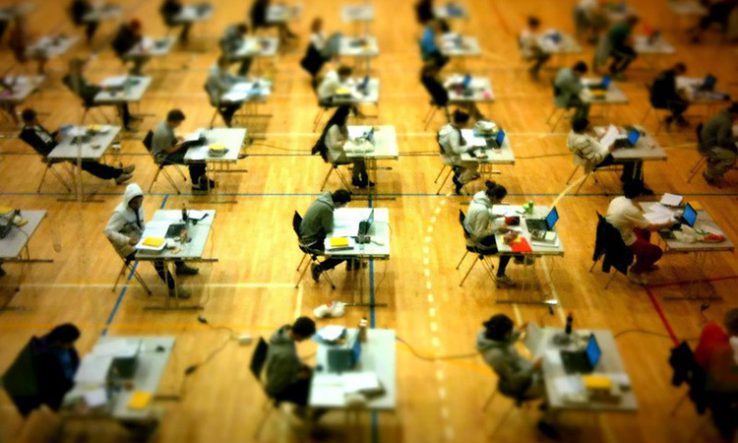
Image: Rune Mathisen [CC BY-SA 2.0] via Flickr
Emma Hardy argues that arrangements for this year’s exams must address barriers for BAME students
Universities have been making progress in both increasing the representation of Black, Asian and ethnic minority students and supporting these students once they arrive on campus. However, with changes to the way A-level grades are awarded this year and with students’ experiences being disrupted by the pandemic, the challenges BAME students face in accessing higher education have been thrown into the spotlight.
Giving evidence to the education select committee, Ofqual acknowledged that a system of predicted grades creates a risk of bias that negatively affects Black, Asian, and ethnic minority pupils, who were more likely to receive predicted grades lower than those that they would go on achieve when they sat their exams.
Many young people had this exact experience last year, with lower grades than they needed to progress to the next stage of their education, and lower than they may have achieved if they were able to sit an exam. This will have sadly prevented students from progressing onto further or higher education, and if they were unable to successfully appeal these grades and did not resit then, they could be living with the consequences of this system for years to come.
With the consultation on arrangements for this year’s exams now at an end, the Department for Education must recognise and address the barriers that last year’s system created for BAME students.
Not just admissions
It is not only in admissions that these students have been fairing worse than their peers. The Higher Education Policy Institute’s Student Academic Experience Survey 2020 showed they were less likely to feel their university experience had met expectations, less likely to think they had received “value for money” and less likely to say they would choose the same course at the same university again.
Black students reported the worst experience. The report Tackling Racial Harassment: Universities Challenged, by the Equality and Human Rights Commission (EHRC), found that around a quarter of students from ethnic minority backgrounds had experienced racial harassment.
The report also found that universities are not following guidance on how to handle complaints and are not recording informal complaints. More than half of those who experienced racial harassment did not report it, citing lack of confidence in the university’s complaints process, not knowing how to report the incident, and fears of retaliation.
These negative experiences are manifest in attainment. The gap between students from Black, Asian and ethnic minority backgrounds and their peers achieving a first or upper-second-class degree was 13 per cent among 2017-18 graduates. In opposition to the government’s claim that universities are hotbeds of “wokeness”, this shows just how far there is to go to ensure Black, Asian and ethnic minority students are able to both access and benefit from higher education to the same extent as their peers.
Take immediate action
There is no short-term fix, but there are immediate actions that could be taken. Universities should be engaging with student representatives to tackle the poorer experience reported by Black, Asian and ethnic minority students at university, especially while students are forced to remain away from campus. The pandemic and disruption to pupils’ learning has strengthened the case for universities to consider individual circumstances as part of the admissions process, so that they can take account of the huge and varied challenges faced by students this year.
I welcomed news that the government has finally listened to Labour’s call for post-qualification admissions (PQA) and launched a consultation on this. PQA would give students the certainty of applying after they receive their grades, removing the variable of applying based on predictions.
Universities still have a long way to go to tackle the barriers their structures, procedures and cultures pose for Black, Asian and Minority Ethnic students. I welcome the guidance from Universities UK on tackling racial harassment published last November and it must be implemented.
The pandemic is widening the gaps and increasing the obstacles for Black, Asian and ethnic minority students. This should be spurring everyone into action to tackle these inequalities.
Emma Hardy is shadow universities minister